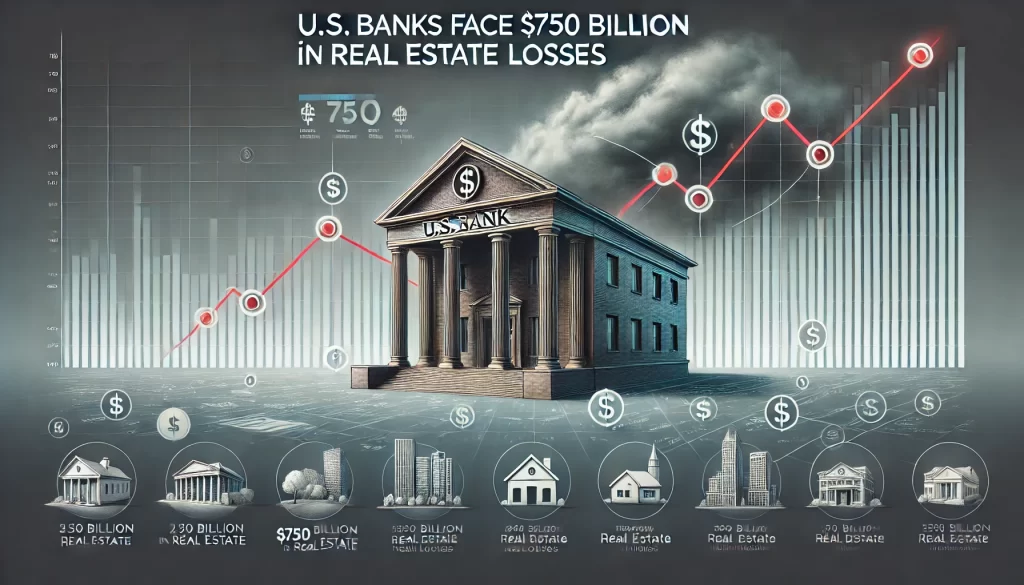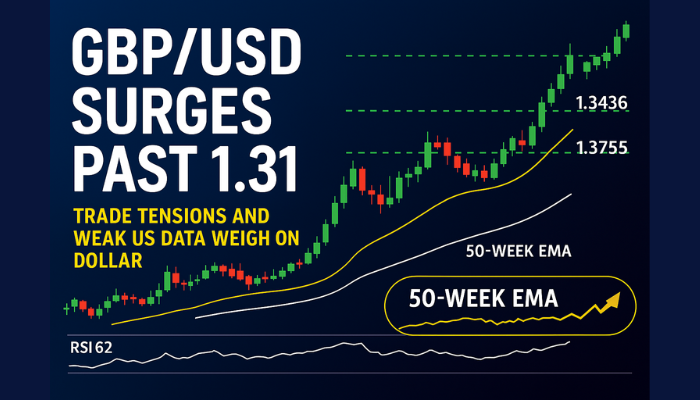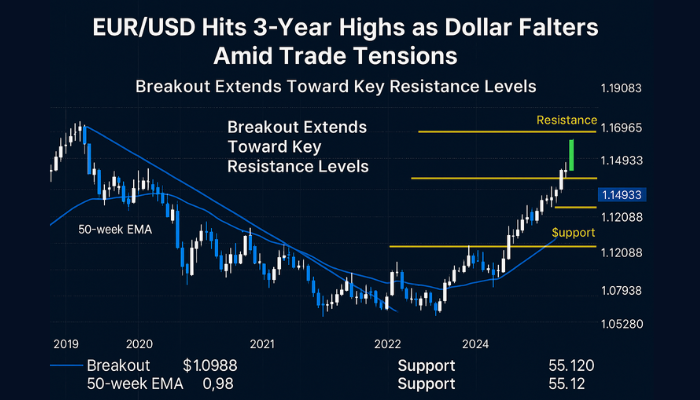U.S. Banks Face $750 Billion in Real Estate Losses: Which Sectors Are Most at Risk?
Even with all the regulatory reforms post 2008, American banks are still exposed to real estate debt and have $750 billion in unrealized losses on real estate securities as of Q3 2024, according to a Cryptopolitan report.

These unrealized losses show that even big institutions are at risk due to real estate and interest rate volatility.
This isn’t limited to real estate securities. Banks are also seeing big losses in other debt areas, in treasury and corporate bonds.
For example, Bank of America had an $85 billion decline in its bond portfolio this year and a $116 billion hit to its Held-to-Maturity (HTM) portfolio over the last 3 years.
Bank of America is not alone, dozens of other banks are facing high exposure and losses in their bond portfolios.
- Real Estate Exposure: $750 billion in potential losses
- Bond Portfolio Declines: Bank of America alone faces $85 billion in losses
- Wider Impact: 47 banks with losses exceeding 50% of capital equity
Interest Rates Hold the Key to Banks’ Financial Health
The extent of these unrealized losses depends on the direction of Federal Reserve interest rates.
If rates stabilize or go down, some analysts say banks can reduce their unrealized losses by 25% and that will be a relief for the financial sector.
But if rates go up again, the outlook for banks holding real estate and bond securities will get worse fast and put more pressure on balance sheets and capital reserves.
47 out of 1,027 American banks with assets over $1 billion have liabilities and losses over 50% of their capital equity.
These are unrealized losses, not cash losses. But the numbers show how exposed some banks are if rates don’t work in their favor.
- Potential Rate Impact: Falling rates could cut losses by 25%
- At-Risk Institutions: 47 banks with liabilities exceeding 50% of equity
- Long-Term Concerns: Rate hikes could exacerbate losses
New Yield Opportunities Outside Traditional REITs
For income seeking investors who are wary of traditional real estate investment trusts (REITs) in this uncertain market, there are alternatives.
Arrived Homes, a Jeff Bezos backed platform, just launched its Private Credit Fund which targets 7-9% net annual yield by investing in short term loans backed by residential real estate.
It paid 8.1% in August and is a good option for investors looking for steady income in a volatile market.
Unlike REITs, this fund’s shorter loan durations may provide more stability in this interest rate uncertain world and allow investors to earn consistent returns without the same level of long term interest rate risk that many banks have.
- Yield Target: 7-9% net annual yield, with 8.1% in August
- Alternative Investment: Short-term loans backed by residential real estate
- Lower Exposure: Mitigated risk compared to traditional REITs
Conclusion
As US banks face $750 billion in real estate losses, interest rates are the key to their wellbeing. For income seeking investors, there are opportunities in alternative real estate funds to find stability in this mess.



